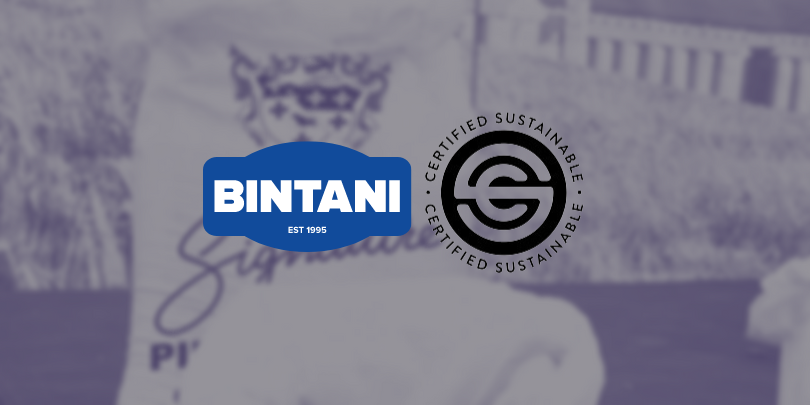
Bintani achieves Certified Sustainable status
Content published under the media release byline is promotional content produced by the business(es) named in the media release and remains unedited by Brews News

Bintani has become the first brewing and distilling ingredients provider to achieve Certified Sustainable accreditation, continuing its focus on sustainability and corporate social responsibility initiatives.
Developed by farmers, agronomists, and natural resource experts, the Certified Sustainable Standard for Producers is a certification that delivers positive environmental, social and governance outcome. Not just addressing the symptoms.
The standard was recently expanded to include modules for Processing (covering maltsters) and Non-Agricultural / Service Providers (such as Bintani), ensuring the integrity of the sustainably grown barley is maintained throughout the supply chain.
Certified Sustainable processors and service providers also need to demonstrate a broader commitment to sustainability and environmentally friendly practices to maintain accreditation under the scheme.
All Bintani’s warehouses are now Certified Sustainable, and its maltings partner Joe White is in the final stages of processing certification.
This means brewers and distillers will very soon be able to access Certified Sustainable malt from Bintani at a time when environmental considerations are becoming vitally important for the industry.
“Traditional high input barley growing is a significant contributor to emissions, and that’s really the biggest part of the process that we can impact and influence as an ingredients provider,” Meddings said.
Certified Sustainable barley is 80 per cent lower in emissions when it leaves the farm, versus a conventionally farmed product.
“If you’re taking 80% out of that barley’s emissions contribution, it’s a big win,” Meddings said.
“It’s visible, it’s meaningful and it’s measurable, and most importantly, it’s economically viable.
“The final cost of the malt to brewers and distillers is always an important consideration and we are confident that we will soon be able to offer it to brewers and distillers at pricing that is competitive with our conventional malt offering.”
Ash Truscott, director of the Certified Sustainable program, said the lower emissions barley was the result of years of hard work by farmers on soil regeneration and sustainable farming practices.
The key contributors include lower tilling regimes – the churning over of the soil – which requires significantly less diesel fuel consumption than the deep tilling practised in conventional farming.
Certified Sustainable growers have also reduced their reliance on harsh pesticides and fertilisers, which are very emissions intensive to manufacture.
“The net outcome is more sustainable grain that’s high in nutrients and lower in emissions,” Truscott said.
“The reduced carbon impact is like a by-product.”
Truscott said Certified Sustainable is looking forward to receiving industry feedback on the grain’s production performance, which he expects will be superior to conventional products.
“In other industry sectors like baking, the millers are saying the grain is much better quality,” he said.
Certified Sustainable growers are subject to an annual audit that ensures their farming practices and record keeping are compliant, with chemicals in the soil and grain remaining below maximum residual levels at the end of the growing season.
“All the hard work and all the wins are had on the farm,” said Meddings.
“Joe White and ourselves have then got to do our part as custodians to make sure the product’s flowing through securely, with its source guaranteed.
“Similar to the organic audit that we have, it’s about us being able to track and trace and segregate the Certified Sustainable ingredients, verifying that it is what it says it is on the bag.”
Bintani and Joe White expect to launch their first Certified Sustainable malt offering in 2023.
“Our goal is that ultimately, every grain of domestic malt that we sell will be Certified Sustainable,” Meddings said.
The initiative is another important milestone in Bintani’s wider sustainability strategy.
Last year, the company relocated its Melbourne HQ to a state-of-the-art warehouse and office near Moorabbin Airport, with sustainable features including 180 kilowatts of rooftop solar power.
The company is currently working on additional sustainability initiatives focused on packaging and products, which will be revealed in the coming months.



